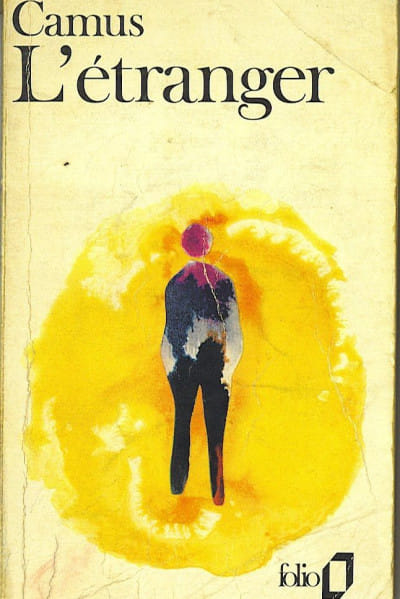Nothing matters, but Albert Camus’s 'The Stranger' does

My father once summoned me and asked me to read at least one book by each Nobel laureate in literature. That is how I discovered The Stranger (1942) by Albert Camus, and when I began reading the book, my knowledge of absurdism was equal to that of an amateur.
The Stranger is narrated in first person, with Meursault serving as the titular character. In my opinion, the book has the most iconic opening line among any book I have ever read. "Mother died today or maybe yesterday, I can't be sure," is very disarming as an opening line, as the typical attitude we associate with grief and loss and mourning is absent here; instead, Meursault is completely nonchalant. It is established quite quickly that Meursault is someone who does not react in a way considered 'socially appropriate' and is therefore condemned.
He tries to deal with his manager so he can attend his mother's funeral. When the manager appears irritated, Meursault apologises, "Sorry, sir, but it's not my fault, you know." One has to notice Camus's subtle irony here. This is a declaration of how death is a bothersome inconvenience in the urbanised modern world of shipping offices, where time is money and the highest value are utility and efficiency.
Meursault's nonchalant behaviour also extends to his significant other, Marie—whom he likes but does not care much about. He is a man without feelings and one incapable of feeling remorse. Those deficiencies are evident in his lack of concern for the behaviour of his neighbours and are mostly revealed when he shoots a stranger—an Arab—after an altercation on the beach.
At his trial for the murder, he feels that the prosecutor and attorney are debating matters unrelated to him. He acts as if it will not matter when he is found guilty and given the death penalty. Meursault tells the reader that he simply was never able to feel any remorse or personal emotions for any of his actions in life because he has always been too absorbed in the present moment.

In my opinion, the most interesting part of the book comes at the very end: Meursault's conversation with the priest. To the priest, a prisoner facing death must be someone who is interested in God. He therefore tries to convince Meursault to stop being an apatheist.
According to the priest, an apatheist like Meursault is not permitted in the world because, if they did, it would represent a conundrum to the priest's fundamental beliefs. He must therefore assume that Meursault is either telling the truth or making fun of him. But the reality is much worse—Meursault is absolutely sincere that he has no interest in learning the 'truth'. Meursault accosts the priest in a rage, and states that although what we say, do, or feel may influence when or under what conditions we pass away, none of these things can change the fact that we are all doomed to pass away one day. Nothing really counts.
This altercation between Meursault and the priest truly baffled me. Meursault, in facing the knowledge that his death is imminent, has more certainty than the priest could ever possess. By showing someone, who is at the brink of death, feeling such certainty towards life and death, Camus made me contemplate my perspective on how to perceive life. Because of Camus, I started to believe in the idea of relative truth and realised how differently people may weigh the different aspects and incidents which occur in their lives.
Camus's novel is a classic example of early modern anomie, alienation, and general indifference towards life. It poses very provocative questions for readers to contemplate: whether much of our emotion is created by ourselves or the expectations of others to exhibit certain emotions in a given situation. However, I think these questions will lose their significance as time passes by, and only the magical essence of Camus's thoughts and words shall remain with me.
Isra Kabir tries to complete her ever growing TBR list, while tackling her sleeping schedule. Reach out to her at [email protected].

 For all latest news, follow The Daily Star's Google News channel.
For all latest news, follow The Daily Star's Google News channel. 







Comments